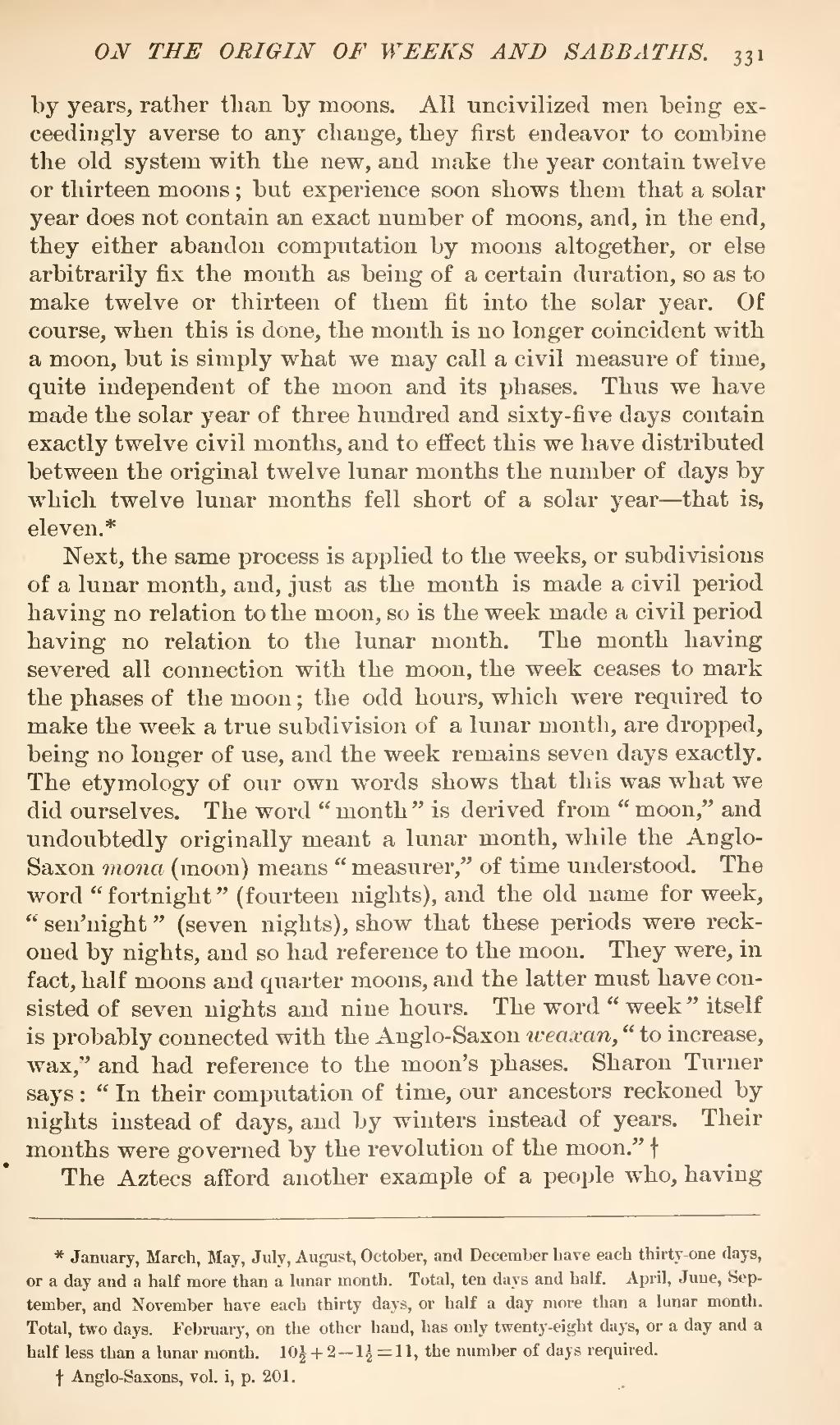by years, rather than by moons. All uncivilized men being exceedingly averse to any change, they first endeavor to combine the old system with the new, and make the year contain twelve or thirteen moons; but experience soon shows them that a solar year does not contain an exact number of moons, and, in the end, they either abandon computation by moons altogether, or else arbitrarily fix the month as being of a certain duration, so as to make twelve or thirteen of them fit into the solar year. Of course, when this is done, the month is no longer coincident with a moon, but is simply what we may call a civil measure of time, quite independent of the moon and its phases. Thus we have made the solar year of three hundred and sixty-five days contain exactly twelve civil months, and to effect this we have distributed between the original twelve lunar months the number of days by which twelve lunar months fell short of a solar year—that is, eleven.[1]
Next, the same process is applied to the weeks, or subdivisions of a lunar month, and, just as the month is made a civil period having no relation to the moon, so is the week made a civil period having no relation to the lunar month. The month having severed all connection with the moon, the week ceases to mark the phases of the moon; the odd hours, which were required to make the week a true subdivision of a lunar month, are dropped, being no longer of use, and the week remains seven days exactly. The etymology of our own words shows that this was what we did ourselves. The word "month" is derived from "moon," and undoubtedly originally meant a lunar month, while the Anglo-Saxon mona (moon) means "measurer," of time understood. The word "fortnight" (fourteen nights), and the old name for week, "sen'night" (seven nights), show that these periods were reckoned by nights, and so had reference to the moon. They were, in fact, half moons and quarter moons, and the latter must have consisted of seven nights and nine hours. The word "week" itself is probably connected with the Anglo-Saxon weaxan, "to increase, wax," and had reference to the moon's phases. Sharon Turner says: "In their computation of time, our ancestors reckoned by nights instead of days, and by winters instead of years. Their months were governed by the revolution of the moon."[2]
The Aztecs afford another example of a people who, having
- ↑ January, March, May, July, August, October, and December have each thirty-one days, or a day and a half more than a lunar month. Total, ten days and half. April, June, September, and November have each thirty days, or half a day more than a lunar month. Total, two days. February, on the other hand, has only twenty-eight days, or a day and a half less than a lunar month. 101/2+2−11/2=11, the number of days required.
- ↑ Anglo-Saxons, vol. i, p. 201.

